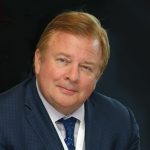Martin Kenney welcomes a new initiative to seize corruptly-obtained assets in the UK
The National Crime Agency (NCA), the UK’s equivalent of the FBI, is establishing a team of investigators dedicated to targeting professional enablers who facilitate the laundering of assets.
The catalyst for this decision appears to be heavily linked to the Russian invasion of Ukraine, and the resultant sanctions against oligarchs whose relationship with Putin has allowed them to cream off state assets.
Adrian Searle, the head of the National Economic Crime Centre (NECC), a division of the NCA, recently stated that disrupting the activities of corrupt oligarchs was now a focus of the Centre and its “Combating Kleptocracy Cell”, which was set up in July last year.
This move has been long overdue. As a lawyer whose wife is Ukrainian, I am perhaps more aware than most of the travesty playing out before the world’s eyes on the eastern borders of Europe.
These crimes are inherently linked to professional enablers
And as a lawyer whose professional focus is also on investigating and recovering assets lost to fraud, corruption, and money laundering, I am cognisant that these crimes are inherently linked to professional enablers – those who facilitate the hiding of assets and associated money laundering. Without such enablers, the whole process of “washing” looted funds would teeter on failure.
The initial list of NCA targets includes law firms, auction houses, accountants and estate agents. When one considers this list, it is obvious even to the layperson why these professions require additional scrutiny, at least when oligarchs are considered. I am not denouncing those who represent oligarchs in their fight to retain their assets, by the way: everyone is entitled to make a defence and litigate what they perceive to be unfair.
Rather, I see the focus being directed at those who clandestinely and willingly taking payment and then deliberately circumvent regulatory systems to make a profit. Any lawyer, accountant or other professional connected to monetary systems that can be corruptly manipulated is effectively accepting blood money and should face the consequences of their actions.
Overall, though, I welcome the NCA’s initiative, even if I have some reservations.
As an aside, the freezing of oligarchs’ assets is a disruption tactic: a means to an end. The freezing of such assets does not (necessarily) equate to stripping them from oligarchs – we should not expect a fire-sale of super yachts anytime soon. This is a point that needs reinforcing in terms of public perception and the actions taken against those such as Putin’s cronies.
Overall, though, I welcome the NCA’s initiative, even if I have some reservations. Historically, UK law enforcement has promised much in the context of dealing with the unexplained wealth of high-net worth individuals suspected of links to corruption. Frequently these well-meaning initiatives have failed to deliver.
But professional enablers of fraud and corruption are a menace to all of us who work in the regulated sector. It is right that they should be looking over their shoulders if they are involved in facilitating those whose wealth is of questionable origin.
____
With thanks to Tony McClements, Head of Investigations at Martin Kenney & Co (MKS).
Martin Kenney is Head of Firm at Martin Kenney & Co (MKS), a specialist investigative and asset recovery practice based in the BVI. He has been chosen as a global elite “Thought Leader” by Who’s Who Legal from 2017-present and is also a Visiting Professor at the University of Central Lancashire’s School of Justice in the UK.


